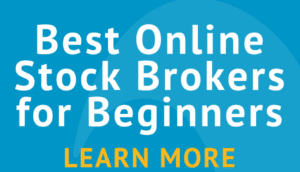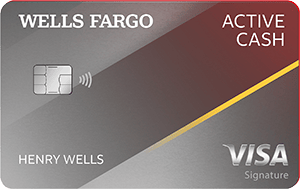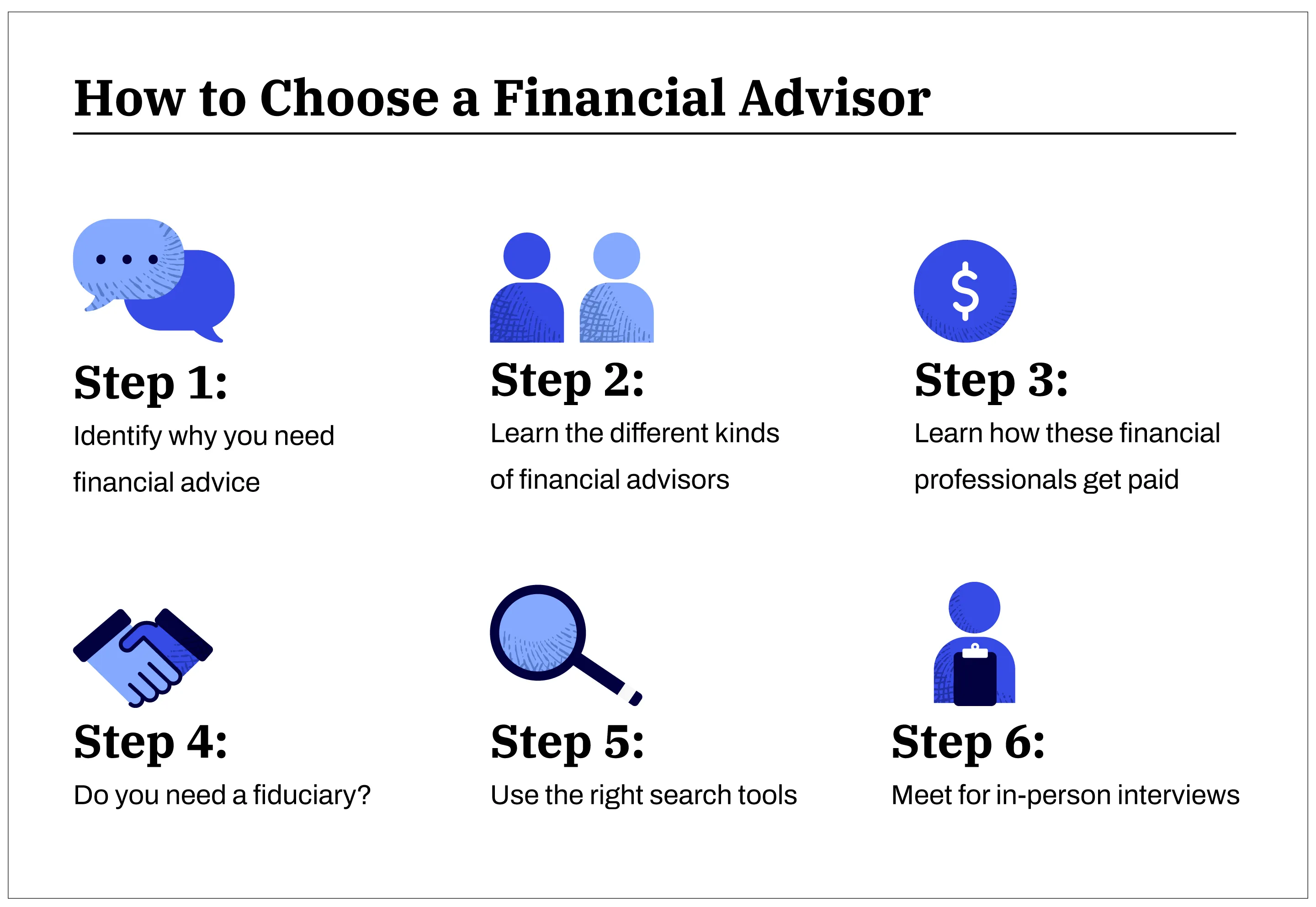12 Best Brokers for Beginners to Start Investing in the Stock Market
Investing in the stock market can be a daunting task, especially for beginners. With so many brokers to choose from, it can be overwhelming to know where to start. That’s why we’ve compiled a list of the 12 best brokers for beginners to help you get started on your investing journey.
These brokers offer user-friendly platforms, educational resources, and affordable fees to make it easier for beginners to understand the various strategies like option trading, active trading, stock trading, etc. Whether you’re looking to invest in individual stocks, mutual funds, or ETFs, these brokers have got you covered. So, let’s take a closer look at the 12 best brokers for beginners to start investing in the stock market.
- TD Ameritrade
- Charles Schwab
- Fidelity
- Merrill Edge
- E-Trade
- Ally Invest
- Robinhood
- Acorns
- Stash
- Wealthfront
- Betterment
- Roth IRA
If you’re a beginner looking to invest in the stock market, there are plenty of online brokers to choose from. The 12 listed above are among the best, offering a range of features and services to help you get started. Whether you’re looking for a user-friendly platform, low fees, or access to educational resources, these brokers have something to offer. Take some time to compare your options and find the best fit for your needs and goals.

1. Robinhood
Why We Like It: Robinhood is a commission-free trading app that is great for beginners who want to start investing in the stock market without paying fees.
Who Should Get It: Beginners who want to start investing in the stock market without paying fees.
Pros:
- Commission-free trading
- No account minimums
- User-friendly app
- No fees for trading
Cons:
- Limited research and educational resources
- No retirement accounts
2. TD Ameritrade
Why We Like It: TD Ameritrade is a great option for beginners who want access to a wide range of investment products and educational resources.
Who Should Get It: Beginners who want access to a wide range of investment products and educational resources.
Pros:
- No account minimums
- Wide range of investment products
- Extensive educational resources
Cons:
- Higher fees for some investment products
- Complex trading platform
3. E*TRADE
Why We Like It: E*TRADE offers a user-friendly platform and a wide range of investment products, making it a great option for beginners.
Who Should Get It: Beginners who want a user-friendly platform and access to a wide range of investment products.
Pros:
- User-friendly platform
- Wide range of investment products
- Retirement accounts available
Cons:
- Higher fees for some investment products
- Limited research and educational resources
4. Fidelity
Why We Like It: Fidelity offers a wide range of investment products and educational resources, making it a great option for beginners.
Who Should Get It: Beginners who want access to a wide range of investment products and educational resources.
Pros:
- No account minimums
- Wide range of investment products
- Extensive educational resources
Cons:
- Higher fees for some investment products
- Complex trading platform
5. Charles Schwab
Why We Like It: Charles Schwab offers a wide range of investment products and no-account minimums, making it a great option for beginners.
Who Should Get It: Beginners who want access to a wide range of investment products and no-account minimums.
Pros:
- No account minimums
- Wide range of investment products
- Retirement accounts available
Cons:
- Higher fees for some investment products
- Limited research and educational resources
6. Ally Invest
Why We Like It: Ally Invest offers low fees and a user-friendly platform, making it a great option for beginners.
Who Should Get It: Beginners who want low fees and a user-friendly platform.
Pros:
- Low fees
- User-friendly platform
- No account minimums
Cons:
- Limited investment products
- Limited research and educational resources
7. Vanguard
Why We Like It: Vanguard offers low fees and a wide range of investment products, making it a great option for beginners.
Who Should Get It: Beginners who want low fees and access to a wide range of investment products.
Pros:
- Low fees
- Wide range of investment products
- Retirement accounts available
Cons:
- No user-friendly platform
- Limited research and educational resources
8. Merrill Edge
Why We Like It: Merrill Edge has an intuitive interface and a diverse assortment of financial products, making it an excellent choice for new investors.
Who Should Get It: Beginners who want a user-friendly platform and access to a wide range of investment products.
Pros:
- User-friendly platform
- Wide range of investment products
- Retirement accounts available
Cons:
- Higher fees for some investment products
- Limited research and educational resources
9. Schwab Intelligent Portfolios
Why We Like It: Schwab Intelligent Portfolios is a robo-advisor that offers low fees and a user-friendly platform, making it a great option for beginners.
Who Should Get It: Beginners who want a robo-advisor with low fees and a user-friendly platform.
Pros:
- Low fees
- User-friendly platform
- No account minimums
Cons:
- Limited investment products
- No human advisors
10. Betterment
Why We Like It: Betterment is another robo-advisor with low fees and an easy-to-use platform, making it an excellent choice for novices.
Who Should Get It: Beginners who want a robo-advisor with low fees and a user-friendly platform.
Pros:
- Low fees
- User-friendly platform
- No account minimums
Cons:
- Limited investment products
- No human advisors
11. Wealthfront
Why We Like It: Wealthfront is a smart choice for novices. It is a robo-advisor with cheap costs and an easy-to-use interface.
Who Should Get It: Beginners who want a robo-advisor with low fees and a user-friendly platform.
Pros:
- Low fees
- User-friendly platform
- No account minimums
Cons:
- Limited investment products
- No human advisors
12. M1 Finance
Why We Like It: M1 Finance offers a unique platform that allows investors to create custom portfolios and offers low fees, making it a great option for beginners.
Who Should Get It: Beginners who want a unique platform to create custom portfolios and low fees.
Pros:
- Unique platform for custom portfolios
- Low fees
- No account minimums
Cons:
- Limited investment products
- Limited research and educational resources
Investing in the stock market can be a great way to build wealth over time, but it’s important to choose the right broker. Whether you’re a beginner looking for a user-friendly platform or a robo-advisor with low fees, there is a broker on this list that will meet your needs.
Frequently Asked Questions
Here are some frequently asked questions that will help you in selecting the best broker for your investment needs.
1. What are the important factors to consider when choosing a broker for beginners?
While selecting a broker for beginners, it is essential to consider factors such as commission fees, account minimums, educational resources, and user-friendly trading platforms. Educational resources such as webinars, blogs, and tutorials can help beginners understand the basics of investing. A user-friendly trading platform can make it easier for beginners to navigate through the stock market.
2. What are the account minimums and commission fees charged by these brokers?
E*TRADE and TD Ameritrade do not have any account minimums and charge a commission fee of $0 per trade. Charles Schwab and Fidelity have an account minimum of $0 and charge a commission fee of $0 per trade for stocks and ETFs. Robinhood also has no account minimums and charges no commission fees for trades.
However, it is essential to note that some brokers may charge other fees, such as account maintenance fees, inactivity fees, and transfer fees. Therefore, it is crucial to read the broker’s fee schedule carefully before opening an account.
3. What are the educational resources provided by these brokers?
E*TRADE, TD Ameritrade, Charles Schwab, and Fidelity offer a wide range of educational resources, including webinars, tutorials, and blogs. These resources cover topics such as investing basics, market analysis, and portfolio management. Robinhood also provides educational resources, including podcasts and articles, to help beginners make informed investment decisions.
Some brokers also offer virtual trading platforms that allow beginners to practice trading without risking their money. These virtual trading platforms can help beginners gain confidence in their investment decisions and develop their investment strategies.
4. What are the investment options available with these brokers?
E*TRADE, TD Ameritrade, Charles Schwab, and Fidelity offer a wide range of investment options, including stocks, bonds, mutual funds, and ETFs. Robinhood, on the other hand, offers stocks, ETFs, and cryptocurrencies. These brokers also offer research tools and analysis to help beginners make informed investment decisions.
It is essential to note that the investment options may vary based on the type of account and the investment objectives of the account holder. Therefore, it is crucial to discuss the investment options with the broker before opening an account.
These brokers have been carefully selected based on their user-friendly platforms, low fees, educational resources, and customer support. As a beginner, you need a broker that can provide you with the necessary tools and resources to help you make informed investment decisions.
Whether you are looking to invest in individual stocks, exchange-traded funds (ETFs), or mutual funds, these brokers have got you covered. With their user-friendly platforms and educational resources, you can learn how to invest in the stock market and grow your wealth over time.
Investing in the stock market can be a great way to build wealth over the long term. With the help of these 12 best brokers for beginners, you can start your investment journey with confidence and ease. Choose a broker that works best for you and start investing in the stock market today!








